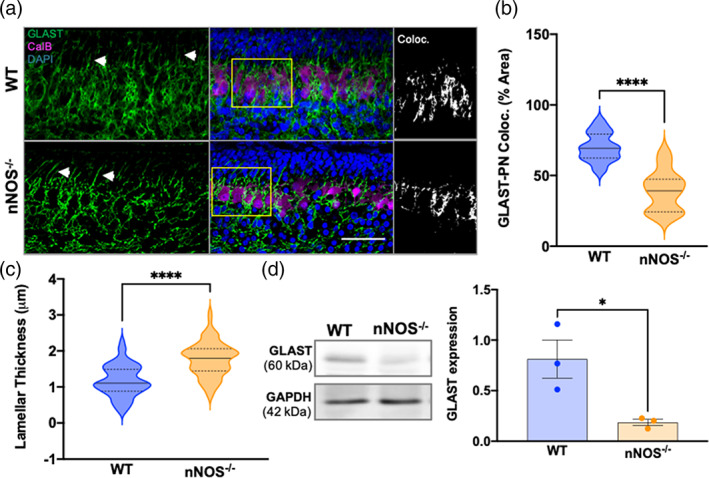FIGURE 1.

BG‐PN colocalization and total GLAST expression decreased at PD3 in nNOS−/− cerebella compared with WT. (a) Representative confocal images of WT and nNOS−/− cerebella showing GLAST (green) in BG, CalB (magenta) in PNs, and nuclei stained with DAPI (blue). White arrows point to BG lamellar processes. Scale bar represents 50 μm. Depicted in the third panel are representative images of GLAST‐CalB colocalization analysis, with white representing the area of GLAST+CalB overlay. (b) Violin plots represent the area of GLAST+CalB overlay in relation to total CalB staining within a consistent ROI size, presented as % area. N = 4 biological replicates per group; WT n = 20 ROIs, nNOS−/− n = 12 ROIs. p < .0001. (c) Violin plots represent lamellar process thickness, measured in μm. N = 4 biological replicates per group. WT n = 58 processes, nNOS−/− n = 79 processes. p < .0001. (d) Representative western blot of total GLAST protein expression for PD3 WT and nNOS−/− cerebella and the housekeeping protein GAPDH. Bar graph reports GLAST expression normalized to GAPDH. N = 3 biological replicates per group. p = .0302
